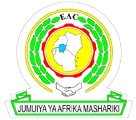Non-Tariff Measure
- NTM classification
- C9: Other formalities, n.e.s.
- Date when the measure came into force
- 01 April 2015
- Publication where the measure is specified
- Statutory Instruments no.54 of 2000, the customs and excise Act Cap 322
- Regulation where the measure is specified
- Regulations Sl. S4 of 2000. Updated in April 2015: The customs and excise (General) regulations, 2000
- Country/Region applying the measure
- Zambia
- Coded list of objectives
- X: For purposes n.e.s.
- Description of the measure
- 8. The inward report of ships, aircraft, trains and vehicles other than railway trains as required by sections twenty, twenty-one, twenty-two, twenty-three and twenty-four of the Act shall be made in Form CE 1 as set out in the Eight Schedule.
9.All sealable goods in a ship, aircraft, train or vehicle other than a railway train which are not or cannot be entered for consumption shall be placed under seal by an officer and the master of the ship, pilot of the
aircraft or the person in charge of the train or other vehicle shall afford every facility for the sealing.
15A. (1) Subject to the provisions of section thirty-two of the Act, entry of goods prior to their arrival at a customs port shall be made to the Customs Services Division not later than five days before the expected date of arrival of the goods.
(2) The description of goods made under paragraphs (a)and (b) of subsection (1) of section thirty-two B of the Act shall be in Form CE 20 as set out in the Eighth Schedule;
(3) The Commissioner ––General may specify goods to be entered for pre-clearance, subject to such conditions as the Commissioner General may prescribe.
(4) Except in such circumstances as the Commissioner-General may permit, a separate bill of entry shall be delivered in respect of each consignment of goods imported, which, in the opinion of the Commissioner-General, constitutes a separate consignment.
(5) If an importer is unable when effecting entry of goods to present an invoice or other documents required to be produced in terms of subsection (1) of section thirty-four of the Act, an officer may, pending the production of such invoice or other documents, accept a monetary deposit sufficient to safeguard the revenue and shall thereafter allow entry of the goods to be made.
(6) If any entry made in terms of this regulation is incorrect, the Customs Division may, subject to such conditions as the Commissioner-General may impose, accept a request made in Form CE 120, set out in the Eighth Schedule to amend the entry.(7) Except in such circumstances as the Commissioner-General may permit, no entry of goods shall be made without a taxpayer identification number.
15B.Subject to the other provisions of these Regulations, no goods may be taken or delivered from a customs area other than in accordance with delivery instructions contained in a duly completed release order in Form CE 4 set out in the Eighth Schedule.
16. (1)Aship, aircraft, train or vehicle other than railway train, engaged in the carriage of freight, cargo or persons to Zambia and thereafter within Zambia shall be deemed to be entered on the lodgment with, and acceptance by, the Customs Division of a duly completed report in Form CE 1 set out in the Eighth Schedule.
(2) Except with the written permission of the Commissioner-General, any foreign ship, aircraft, train or vehicle engaged in the carriage of freight cargo or persons to Zambia shall be required to make exit within ten days from the date of entry.
(3)There shall be charged, levied, collected and paid in respect of any foreign ship, aircraft, train or vehicle that remain in Zambia in contravention of sub-regulation (2) a fee at the rate set out in the First Schedule. (4)A foreign ship, aircraft, train or vehicle that remains in Zambia beyond ten days after the authorised period shall be liable to seizure: Provided that any ship, aircraft, train or other vehicle that engage in the carriage of goods or persons within Zambia beyond that sanctioned by the terms of any Customs carrier’s licence or otherwise than with the written permission of the Commissioner-General and which remain in Zambia beyond a period of thirty days from the date of first arrival, shall be required at the direction of the Commissioner General, to be entered for consumption in accordance with the provisions of sub-section (2) of section thirty-two of the Act.
17. A military ship, aircraft or vehicle visiting Zambia at the invitation of the Republic shall be deemed to be entered on the lodgment of a duly completed inward report in Form CE 1 set out in the Eighth Schedule.
18.A ship, aircraft, or vehicle visiting Zambia in or during the course of emergency or disaster relief activities shall be deemed to be entered on the lodgment of a duly completed inward report in Form CE 1 set out in the Eighth Schedule.
19.Where duty is not paid within a period of five days (exclusive of Saturdays and Sundays and any public holiday) from the date of issue of the assessment notice, the person liable to pay that duty or fine shall pay an additional duty or fine consisting of interest on the unpaid amount, calculated at the prevailing discount rate by the Bank of Zambia plus two per centum per annum for the period that the duty or fine thereafter remains unpaid: Provided that where the assessment notice remains outstanding for the period of thirty days from the date of issue, the goods in respect of which the assessment notice was issued shall be liable to seizure
135. (1) The working hours of the Customs Division pursuant to section one hundred and ninety-nine of the Act shall be those hours advised from time to time for each port and place in the Ports and Routes Order issued under section thirteen of the Act and otherwise shall be from 08: 00 to 17: 00 hours.
(2)No person shall be engaged in executing transit operations without a Customs Bond Certificate issued by the competent authority in the member state where that person is resident or established, except that the competent authority shall inform all member states of all persons so licensed.
(3)Pursuant to sub-section (3) of section forty-three of the Act, a Customs Bond Certificate shall be issued to principal sureties that fulfill the requirements as set out in the treaty under which the goods are imported and the customs bond agreement: Provided that the Customs Services Division shall -
(a)determine the general bond amount for either single transit or multiple transit operations; and
(b) upon notification by the principal surety decide on the admission of the designated surety.
(4)The Customs Services Division shall issue a certificate of approval to the means of transport in accordance with the Act.
(5)For the purpose of this regulation- ““carrier” ”means the person actually transporting goods in transit or in charge of or responsible for the operation of the respective means of transport; and ““Certificate of guarantee” ”means a customs transit guarantee Certificate which is issued to the principal by the customs office of guarantee - Reference of the measure
- Part III (8&9, 15-19) and XIV para 138 (1), (2)
- Measure also domestic
- No
Products affected by the measure.
| Code | Product | Partial coverage | Partial coverage indication | Date in | Date out |
|---|
| PG: 1 | All products | No | | 01 April 2015 | |
- Description
- Imported goods
Countries/Regions affected by the measure.
| Inclusion/Exclusion | Country | Date in | Date out |
|---|
| Inclusion | Entire world | 01 April 2015 | |
- Description
- All importing countries
{"transfer_retrieve_error":"Transferred complaint details could not be retrieved.","translate_error":"Text could not be translated"}
https://tradebarriers.org/img/flag_icons



 English
English Français
Français
